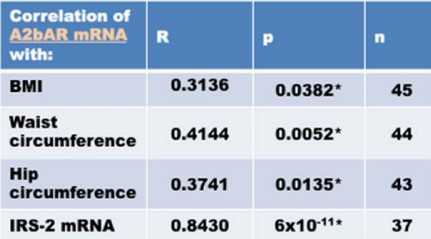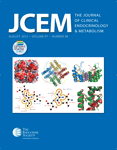Neurology:肥胖等代谢因素或导致认知功能下降加快
2012-08-22 Beyond 生物谷
根据在2012年8月21日发表于Neurology杂志上的一项研究显示:肥胖并且伴发高血压和代谢异常等其他风险因素的人随着时间的推移可能会比别人在认知能力下降上更快。 代谢异常被定义为具有两个或两个以上的下列风险因素:血压高或服用高血压药、低水平的高密度脂蛋白或“好”胆固醇、高血糖或服用糖尿病药物、高甘油三酯或服用降低胆固醇的药物。 在这项涉及6401人的研究中,参试人员开始时的平均年龄为50
根据在2012年8月21日发表于Neurology杂志上的一项研究显示:肥胖并且伴发高血压和代谢异常等其他风险因素的人随着时间的推移可能会比别人在认知能力下降上更快。
代谢异常被定义为具有两个或两个以上的下列风险因素:血压高或服用高血压药、低水平的高密度脂蛋白或“好”胆固醇、高血糖或服用糖尿病药物、高甘油三酯或服用降低胆固醇的药物。
在这项涉及6401人的研究中,参试人员开始时的平均年龄为50。在研究开始时收集身体质量指数(BMI)及风险因素等信息。在未来10年中,参试者参加了三次记忆和其他认知技能测试。
总共有31%的参与者有两个或更多的代谢异常症状。9%为肥胖的人为肥胖,38%的人超重。582名肥胖人中,350名或60%的人符合代谢异常的条件。
在10年的研究中,肥胖和代谢异常的人比那些体重正常、没有代谢异常的人认知功能经历了22.5%的速度下降。
国家健康与医学研究院、法国巴黎和英国伦敦大学学院Archana Singh-Manoux博士说:目前需要更多的研究考察遗传因素的影响,同时也考虑到人们肥胖的持续时间等因素对研究结果的影响。这项研究是由美国国立卫生研究院以及英国医学研究理事会等资助。
编译自:Obesity, Metabolic Factors Linked to Faster Cognitive Decline

doi:10.1212/WNL.0b013e3182661f63
PMC:
PMID:
Obesity phenotypes in midlife and cognition in early old age: The Whitehall II cohort study.
A. Singh-Manoux, S. Czernichow, A. Elbaz, A. Dugravot, S. Sabia, G. Hagger-Johnson, S. Kaffashian, M. Zins, E. J. Brunner, H. Nabi, M. Kivimaki
Objective: To examine the association of body mass index (BMI) and metabolic status with cognitive function and decline.
Methods: A total of 6,401 adults (71.2% men), aged 39–63 years in 1991–1993, provided data on BMI (normal weight 18.5–24.9 kg/m2, overweight 25–29.9 kg/m2; and obese ≥30 kg/m2) and metabolic status (abnormality defined as 2 or more of 1) triglycerides ≥1.69 mmol/L or lipid-lowering drugs, 2) systolic blood pressure ≥130 mm Hg, diastolic blood pressure ≥85 mm Hg, or antihypertensive drugs, 3) glucose ≥5.6 mmol/L or medications for diabetes, and 4) high-density lipoprotein cholesterol <1.04 mmol/L for men and <1.29 mmol/L for women). Four cognitive tests (memory, reasoning, semantic, and phonemic fluency) were administered in 1997–1999, 2002–2004, and 2007–2009, standardized to z scores, and averaged to yield a global score.
Results: Of the participants, 31.0% had metabolic abnormalities, 52.7% were normal weight, 38.2% were overweight, and 9.1% were obese. Among the obese, the global cognitive score at baseline (p = 0.82) and decline (p = 0.19) over 10 years was similar in the metabolically normal and abnormal groups. In the metabolically normal group, the 10-year decline in the global cognitive score was similar (p for trend = 0.36) in the normal weight (?0.40; 95% confidence interval [CI] ?0.42 to ?0.38), overweight (?0.42; 95% CI ?0.45 to ?0.39), and obese (?0.42; 95% CI ?0.50 to ?0.34) groups. However, in the metabolically abnormal group, the decline on the global score was faster among obese (0.49; 95% CI 0.55 to 0.42) than among normal weight individuals (0.42; 95% CI 0.50 to ?0.34), (p = 0.03).
Conclusions: In these analyses the fastest cognitive decline was observed in those with both obesity and metabolic abnormality.
GLOSSARY
BMI= body mass index; HDL= high-density lipoprotein; MHO= metabolically healthy obesity
本网站所有内容来源注明为“梅斯医学”或“MedSci原创”的文字、图片和音视频资料,版权均属于梅斯医学所有。非经授权,任何媒体、网站或个人不得转载,授权转载时须注明来源为“梅斯医学”。其它来源的文章系转载文章,或“梅斯号”自媒体发布的文章,仅系出于传递更多信息之目的,本站仅负责审核内容合规,其内容不代表本站立场,本站不负责内容的准确性和版权。如果存在侵权、或不希望被转载的媒体或个人可与我们联系,我们将立即进行删除处理。
在此留言










#认知功能下降#
35
#Neurol#
32